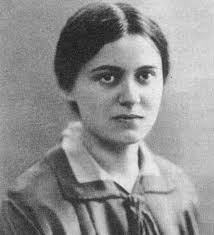Like many, I had a pretty typical Catholic upbringing. I was baptized as a baby surrounded by family. I went to CCD and youth group, received the sacraments of initiation, and read the lives of the saints. So growing up I thought I knew who God was and what He was asking of me.
“All Christians are called to perfection,” says the Church.
“We are called to be saints,” many popes have affirmed.
“Be as perfect as your Heavenly Father is perfect,” Jesus said during His sermon on the mount.
However, in my immaturity, I developed a skewed perception of what it means to be a good Catholic. I must never commit a sin, never be tempted to sin, and never struggle to not sin. I seriously thought this was how I was supposed to live: hyperconscious of my every action, word, and thought.
And I didn’t have anyone tell me otherwise–youth group meetings never reached this level in small group discussions, my family didn’t have close relationships with any priests or religious, and I don’t think my parents could see that I had this perception. I was barely aware of this perfectionism that I was letting shape my personality and actions.
Read more

